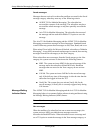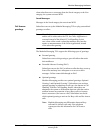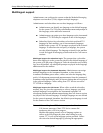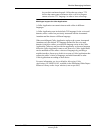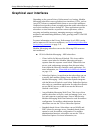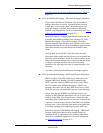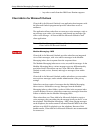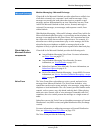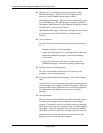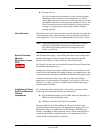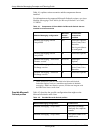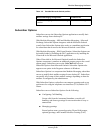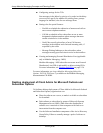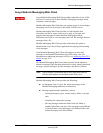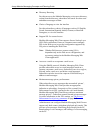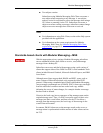
Avaya Modular Messaging Concepts and Planning Guide
4-18 November 2004
Avaya Modular Messaging Concepts and
Planning Guide
! Directory access for addressing message recipients. With
Modular Messaging—MSS, the Voice Form also provides
directory access for addressing messages to PDLs.
With Modular Messaging—MSS, the Voice Form provides access
to the MSS directory. The MSS directory includes the Modular
Messaging Global Address List, the Modular Messaging Personal
Distribution List, and Personal Contacts.
With Modular Messaging—Microsoft Exchange, the Voice Form
provides access to the Global Address List and Personal
Contacts.
! User preferences
Using the Voice Form, subscribers can set such user preferences
as:
— automatic playback of voice messages
— request for notification of voice messages that are delivered
and opened (Modular Messaging—Microsoft Exchange
version only)
— request for read receipt of all new voice messages sent
(Modular Messaging—Microsoft Exchange version only)
! Message sensitivity and importance
The Voice Form enables subscribers to set sensitivity and
importance on a per-message basis.
! Message comment (Modular Messaging—Microsoft Exchange
only)
Using the Voice Form, subscribers can attach text comments to a
voice message (new or opened). Modular Messaging—MSS does
not support this feature. Subscribers can use message comments
as search criteria, thus making it easier to locate specific
messages.
! Message subject
The Voice Form permits subscribers to add a text subject when
creating a new message or when replying to or forwarding a
message. This makes it easier for recipients to refer to messages
when using a GUI client, or scanning via the TUI. With Modular
Messaging—Microsoft Exchange, the Voice Form also enables
subscribers to edit text subjects of messages they have received.
Subscribers can use message subjects as search criteria, thus
making it easier to locate specific messages.



